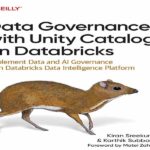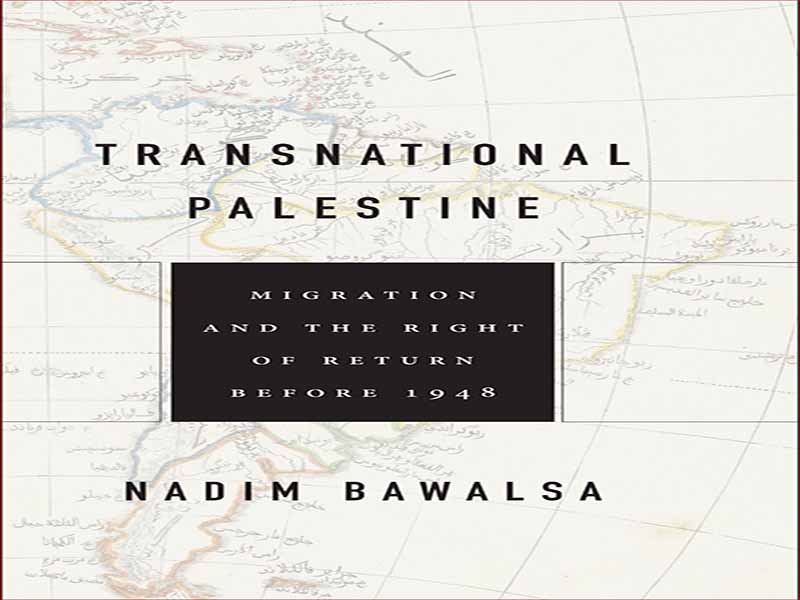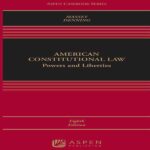- عنوان کتاب: TRANSNATIONAL PALESTINE
- نویسنده/انتشارات: Nadim Bawalsa
- حوزه: فلسطین
- سال انتشار: 2022
- تعداد صفحه: 299
- زبان اصلی: انگلیسی
- نوع فایل: pdf
- حجم فایل: 12.0 مگابایت
«ما همیشه فلسطینی خواهیم بود، هرگز تغییر ملیت را قبول نخواهیم کرد.» 1 در 2 ژانویه 1927، عیسی تالاماس، یک مهاجر فلسطینی در سالتیلو، مکزیک، طوماری را که به هربرت پلامر، دومین کمیسر عالی بریتانیا برای فلسطین نوشته بود، با این عبارات پایان داد. .2 تالاماس این طومار را از طرف کمیته Hijos de Palestina در سالتیلو ارسال کرد که اعضای آن تعداد فزاینده ای از مهاجران فلسطینی را نمایندگی می کردند که دولت فلسطین در اورشلیم به دنبال اعلام فرمان شهروندی فلسطین از شهروندی فلسطینی محروم می کردند. شورای در ژوئیه 1925، قانونی به عنوان بخشی از اختیارات جدید بریتانیا بر فلسطین به تصویب رسید. چند هفته بعد، در 5 فوریه 1927، اعضای Centro Social Palestino در مونتری، مکزیک، پس از رد درخواست های آنها برای شهروندی فلسطین، طوماری شش صفحه ای به کمیسر عالی نوشتند. اعضای مرکز در طومار خود اعلام کردند: «اعتقاد قطعی ما این است که نه اقتدار قیمومیت انگلستان بر فلسطین، نه شخص شما، کمیساریای عالی، و نه در نهایت جامعه ملل هرگز ما را به چنین افراط خواری تقلیل نمی دهند. با امتناع دولت اورشلیم از اعطای تابعیت به آنها و با از بین رفتن اسناد تابعیت عثمانی آنها پس از فروپاشی امپراتوری عثمانی در سال 1918، این مهاجران فلسطینی بی تابعیت شدند. بدون تابعیت در نظم جهانی بین جنگهای جدید، آنها در خارج از کشور فاقد نمایندگی کنسولی و قانونی بودند. آنها نمی توانستند مجوز سفر درخواست کنند. و فاجعه بارتر از همه، آنها هرگونه ادعای ارث و مالکیت در فلسطین را از دست دادند. آنها این وضعیت نامشروع را رد کردند و در برابر آنچه که ظلم بزرگی در حق وارثان حق شهروندی فلسطین می دانستند، استواری خود را ابراز کردند. تا سال 1930، فرمان شهروندی تقریباً سی هزار مهاجر فلسطینی را در سراسر قاره آمریکا تحت تأثیر قرار داد. این کتاب تاریخچه مهاجرت فلسطینی ها به آمریکای لاتین از اواخر قرن نوزدهم، مبارزات مهاجران فلسطینی برای تامین یک ابزار قانونی و دائمی برای ارتباط با فلسطین جغرافیایی از طریق شهروندی در دوره بین دو جنگ را بررسی می کند، و راه هایی که در آن چالشها به شکلگیری یک دیاسپورای فلسطینی کمک کرد که ارتباط نزدیکی با ظهور آگاهی ملی فلسطین داشت. به عبارت دیگر، این کتاب استدلال میکند که آگاهی ملی فلسطین در طول دوره بینجنگ بهرغم و در پاسخ به سیاستهای انحصاری بریتانیا، بهطور فراملی رشد کرد. بنابراین، مطالعه تاریخ فلسطین مدرن را گسترش می دهد تا تحلیل فراملی را از طریق دریچه مهاجرت و دیاسپورا بپذیرد. این نشان می دهد که چگونه حکومت فلسطین در دوران به اصطلاح لیبرال بین جنگ های بین المللی کاملاً به نفع صهیونیست ها منحرف شده است. و شروع روایت مبارزات فلسطینی ها برای تضمین حق بازگشت به فلسطین را از سال 1948، سال خلع ید دائمی بیش از 750000 فلسطینی پس از ایجاد دولت اسرائیل، به سال 1925، سال اعلام، تغییر می دهد. شورای شهروندی فلسطین. این کتاب به بررسی منابع آرشیو، کتابخانه ها و مجموعه های خصوصی در انگلستان، فلسطین، اسرائیل، مکزیک و شیلی می پردازد تا نوع جدیدی از تاریخ فلسطین و فلسطینیان را ترسیم کند. از مضامین مهاجرت و دیاسپورا برای بررسی روش هایی استفاده می کند که در آن مهاجران در سراسر آمریکای لاتین که از فلسطین جغرافیایی آمده بودند، در عریضه ها و نشریات در نتیجه سیاست های محروم کردن شهروندی بریتانیا، بیشتر و بیشتر از خود به عنوان فلسطینی صحبت می کردند. در حالی که مهاجران فلسطینی در سالهای قبل از انحلال امپراتوری عثمانی با سهولت بیشتری به عنوان سوریها، عثمانیها یا عربها شناخته شده بودند، دگرگونیهای اساسی در ژئوپلیتیک سوریه بزرگ پس از جنگ جهانی اول شاهد ظهور و تثبیت موارد جدید بود. دسته بندی هویت ملی در میان مهاجران منطقه، از جمله “لبنانی”، “سوری” و “فلسطینی”. ظهور «فلسطینی» بهعنوان یک شناسه سیاسی، اگرچه برای جامعهای که مدتها فلسطین را منطقه جنوبی سوریه بزرگ میدانست، بیگانه نیست، اما بهطور جداییناپذیری با شیوههای استعماری بریتانیا در فلسطین، که از اواسط قرن بیستم آغاز شد، مرتبط بود. جنگی که به نفع صهیونیست ها و مهاجران یهودی به هزینه فلسطینی ها در فلسطین و مهاجرین یا مهجر انجامید.
“we shall always b e Palestinians, never admit change of nationality.”1 On 2 January 1927, Jesus Talamas, a Palestinian migrant in Saltillo, Mexico, ended a petition he wrote to Herbert Plumer, second British high commissioner for Palestine, with these words.2 Talamas sent the petition on behalf of the Comité Hijos de Palestina in Saltillo, whose members represented a growing number of Palestinian migrants who were being denied Palestinian citizenship by the Government of Palestine in Jerusalem following the promulgation of the Palestinian Citizenship Order- in- Council in July 1925, legislation enacted as part of the new British mandate over Palestine. Weeks later, on 5 February 1927, members of the Centro Social Palestino in Monterrey, Mexico, wrote a six- page petition to the high commissioner following the rejection of their applications for Palestinian citizenship. In their petition, members of the Centro declared: “Our fi rm conviction is that neither the authority of England’s Mandate on Palestine, nor you personally, Lord High Commissioner, nor lastly the League of Nations would ever reduce us to such an ignominious extremity.”3 With the Government of Jerusalem’s refusal to grant them citizenship and with their Ott oman citizenship documents defunct following the collapse of the Ott oman Empire in 1918, these Palestinian migrants were rendered stateless. Without citizenship in the new interwar world order, they lacked consular and legal representation while abroad; they could not request travel permits; and, most disastrously, they lost any claim to inheritance and owner ship in Palestine. Th ey refused this undignifi ed status and expressed their steadfastness in the face of what they considered a grave injustice against the rightful heirs of Palestinian citizenship. By 1930, the citizenship ordinance aff ected roughly thirty thousand Palestinian migrants throughout the Americas. Th is book explores the history of Palestinian immigration to Latin America starting in the late nineteenth century, the struggles of Palestinian migrants to secure a legal and permanent means to remain connected to geographic Palestine through citizenship in the interwar period, and the ways in which these challenges contributed to the formation of a Palestinian diaspora that was intimately connected to the emergence of Palestinian national consciousness. In other words, the book argues that Palestinian national consciousness developed transnationally throughout the interwar period in spite of and in response to exclusionary British policies. It thus expands the study of modern Palestinian history to embrace transnational analysis through the lenses of migration and diaspora; it demonstrates how the governance of Palestine during the so- called liberal interwar period was thoroughly lopsided in favor of the Zionists; and it repositions the start of the narrative of a Palestinian struggle to secure a right of return to Palestine from 1948, the year of the permanent dispossession of over 750,000 Palestinians upon the creation of the state of Israel, to 1925, the year of the promulgation of the Palestinian Citizenship Order- in- Council. Th e book examines sources from archives, libraries, and private collections in England, Palestine, Israel, Mexico, and Chile to chart a new kind of history of Palestine and Palestinians. It uses the themes of migration and diaspora to investigate the ways in which migrants across Latin America who came from geographic Palestine began to speak of themselves more and more as Palestinians in petitions and periodicals as a result of exclusionary British citizenship policies. Whereas migrants from Palestine had identifi ed more readily as Syrians, Ott omans, or Arabs in the years prior to the dissolution of the Ott oman Empire, the radical transformations in the geopolitics of Greater Syria following World War I saw the emergence and consolidation of new categories of national identifi cation among migrants from the region, including “Lebanese,” “Syrian,” and “Palestinian.” Th e emergence of “Palestinian” as a political identifi er, although not alien to a community that had long known Palestine to be the southern region of Greater Syria, was thus inextricably connected to British colonial practices in Palestine, which started in the midst of the war and which favored Zionists and Jewish immigrants at the expense of Palestinians in Palestine and the diaspora, or the mahjar.
این کتاب را میتوانید از لینک زیر بصورت رایگان دانلود کنید:
Download: TRANSNATIONAL PALESTINE





































نظرات کاربران